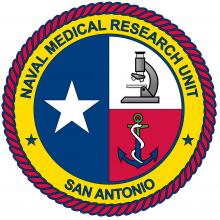Evaluation of Amnion-Derived Multipotent Progenitor (AMP) Cells and Amnion-Derived Cellular Cytokine Solution (ACCS) in Promoting Craniomaxillofacial Regenerative Bone Healing in Rat (Rattus norvegicus) Critical Size Calvarial Defects
Combat-incurred craniomaxillofacial injuries often result in massive bone tissue loss. Standards of care such as autologous grafting have limitations including cost, availability and prolonged inpatient care. Thus, therapeutics are needed which can not only accelerate bone regeneration, but are also readily available, cost-effective and reduce time of inpatient care. Amnion-derived multipotent progenitor (AMP) cells secrete a variety of cytokines and growth factors which have been shown to promote bone growth. This “cocktail” of cytokines and growth factors is known as amnion-derived cellular cytokine solution (ACCS).
Navy researchers are investigating the ability of AMP cells and ACCS to regenerate critical size bone defects which normally, cannot heal by themselves. AMP cells and ACCS will first be investigated for their ability to influence pathways of bone regeneration in vitro. Pending positive results, AMP cells and ACCS will then be evaluated in an in vivo study to assess the efficacy of AMP cells and ACCS to accelerate bone regeneration using a rat critical size bone defect model along with gene expression analysis to provide mechanistic insight into the therapeutic effects of AMP cells and ACCS on bone regeneration. This information will provide preclinical data to move AMP cells and ACCS forward to investigational new drug submission to the FDA. Such therapeutics will be beneficial in repairing large craniomaxillofacial bone defects without the limitations that autologous grafting suffers from.

